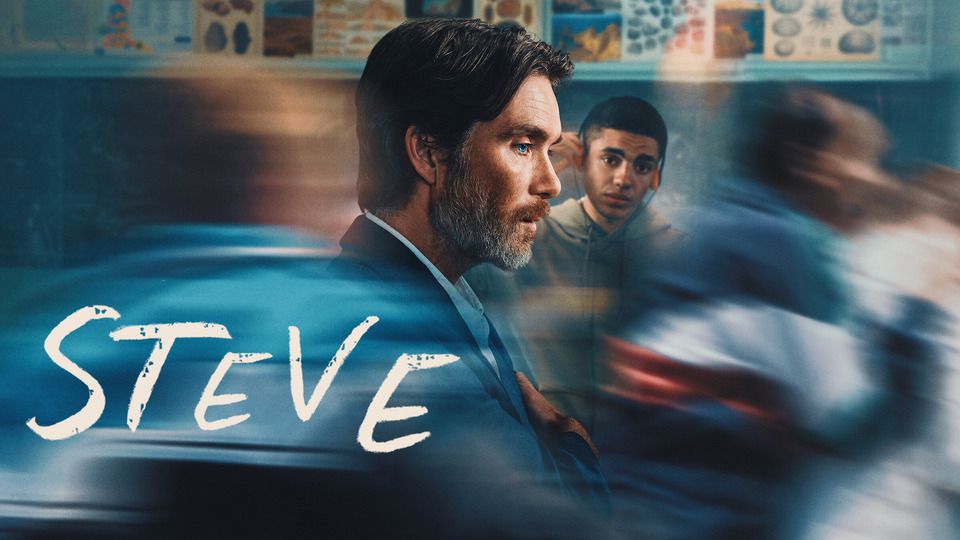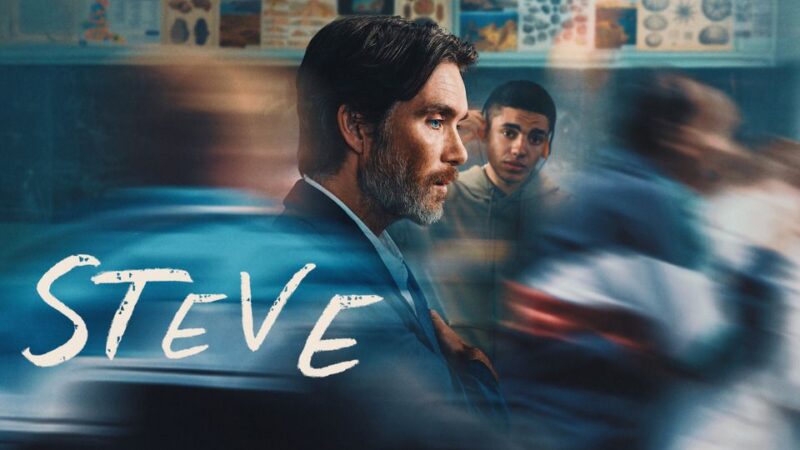
Some movies will not break you immediately. They’ll be calm until you realise you’ve been watching while your chest tightens the whole time. Steve, now streaming on Netflix, is one of those films. It will leave you staring at the screen, trying to put a name to what you’re feeling.
Directed by Tim Mielants and written by Max Porter from his 2023 novella Shy, Steve follows the story of a man trying to save others while slowly losing himself. It’s a film about guilt, empathy, and the exhausting act of holding on when everything feels irredeemable. Cillian Murphy delivers one of his best and most devastating performances yet, while proving that pain doesn’t need to be loud to be believable.
A school for the broken
The story begins inside a secluded boarding school for boys with severe behavioural and mental-health issues. The type of place society forgets exists. It’s hidden away, underfunded, and treated like a dumping ground for the kids everyone else has given up on.
Steve (Murphy) is the head teacher, managing chaos with mostly just patience and restraint. Alongside a small team of exhausted staff, he tries to reach students who respond to love and violence the same way. These boys, angry, unpredictable, and often violent, are introduced in a way that almost encourages us to dislike them. But slowly, Steve asks us to do something harder: to understand them.
The film doesn’t excuse their actions, but it refuses to flatten them into monsters. Beneath the shouting and self-harm and broken glass are flashes of humour, friendship, and something like hope. The camera stays rolling long enough to show us that most people labelled “unmanageable” are usually just unheard.
Steve and Shy: mirrors of the same pain
Among the boys, one stands out. Shy, played by Jay Lycurgo. Shy is violent, yes, but also deeply aware of the world’s inability to care. He feels everything too much and has no idea what to do with it. His therapist, Jenny (Emily Watson), calls him “emotionally intelligent.” Steve sees himself in the boy, more than he realises.
Because Steve, for all his calmness, is drowning too. We learn that he carries guilt from a past accident in which a girl died. That guilt has turned into self-punishment and a compulsion to take responsibility for everyone and everything around him. When Jenny tells him he needs to accept help, he numbs himself instead with substances and silence.
This is where Steve hits hardest. It shows two people, one young, one grown, trapped in the same cycle of pain, both convinced they must bear it alone. When Shy asks him why he cares so much, it’s more like him begging for honesty. The film never gives us a proper answer, which is fair, because there usually isn’t one. Sometimes caring is just another form of punishment.
Read Also: 2025 Is the Year of Horror: 7 Terrifying Horror Films You Need to See
The face of despair
Steve is also not dramatic. Its violence is not exaggerated, nor is its sentiment. What makes it so emotional is how it takes away the easy labels around mental illness. These boys aren’t portrayed as lost causes or inspirational survivors. They’re just people trying to survive their own heads.
Shy’s eventual suicide attempt is not done with the usual overemphasis we’d expect with it. There’s no grand buildup, just a sense of surrender. When he returns later, his attempt unsuccessful, it feels less like triumph and more like endurance. The film captures that unsettling truth, that suicidal people rarely want to die. They just can’t find another way to stop hurting.
For viewers, it’s uncomfortable empathy. You start the film judging; you end it recognising. It makes you confront how easily society dehumanises those who suffer visibly, and how rarely we see their pain reflected without people being high and moral about it.
What Steve Teaches Us About Empathy
In an era of shiny mental-health discourse, Steve feels uncomfortably honest. It doesn’t tidy up the mess or offer inspiration. Instead, it holds a mirror to what empathy really looks like, which is often imperfect and thankless. It challenges us to reconsider the people we label and those who burn out trying to save them.
Murphy’s excellent performance drives the chaos. He barely raises his voice, yet he always sounds exhausted. Jay Lycurgo, meanwhile, plays Shy with sincerity that’s rare in young actors. Together, they make the film’s heartbreak believable.
How Steve Turns Pain Into Reflection
By the end, there’s no big resolution. The school still struggles, Steve still carries his guilt, and Shy’s future remains uncertain. But that’s what makes Steve good.
When the movie ends, you may not know exactly what you feel, only that it’s something between sadness and empathy. Which is probably the point. Steve isn’t trying to fix anybody. It’s just reminding you that brokenness, in all its forms, still deserves care.








